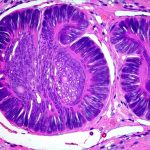Gut inflammation is increasingly recognized as a central driver in many chronic diseases, extending far beyond digestive issues. Often subtle in its early stages, it can contribute to conditions like autoimmune disorders, mood imbalances, skin problems, and even neurological concerns. Identifying gut inflammation proactively is key to managing overall health and preventing more serious complications down the line. Traditional diagnostic methods often rely on invasive procedures like colonoscopies, which while definitive, aren’t always accessible or desirable for initial screening. Fortunately, a growing number of non-invasive tests and assessments can provide valuable insights into the state of your gut health.
This article will explore practical ways to screen for gut inflammation without resorting to scoping (colonoscopy or endoscopy). We’ll delve into blood tests, stool analyses, dietary considerations, symptom tracking, and other helpful strategies. It’s important to remember that these methods are best used as part of a comprehensive evaluation in collaboration with a healthcare professional; they aren’t meant to self-diagnose but rather to inform further investigation when necessary. Understanding the landscape of available options empowers you to take control of your gut health journey and advocate for appropriate testing and care.
Blood Tests: Unveiling Systemic Markers of Inflammation
Blood tests offer a readily accessible window into systemic inflammation, which often accompanies gut inflammation even before noticeable digestive symptoms arise. Several key markers can indicate an inflammatory process within the body. C-reactive protein (CRP) is one commonly measured marker; it’s produced by the liver in response to inflammation and elevated levels suggest widespread inflammation. However, CRP isn’t specific to the gut—it can be raised due to other causes as well—so it’s best interpreted alongside other findings.
Another important test is a complete blood count (CBC) with differential, which assesses white blood cell counts. Elevated white blood cells often signal an immune response and potential inflammation. Specifically, looking at neutrophil-to-lymphocyte ratio (NLR) can be insightful; a higher NLR suggests more inflammatory activity. Furthermore, certain antibody tests can help identify sensitivities or reactivities that may contribute to gut inflammation. For example, testing for antibodies related to food proteins (IgG, IgA, and IgM) might reveal potential triggers. It’s crucial to note that food sensitivity test results should be interpreted cautiously and in conjunction with a healthcare provider due to varying degrees of scientific support and potential for misinterpretation.
Beyond these standard markers, more specialized blood tests can assess gut permeability (“leaky gut”), which is often linked to inflammation. Zonulin is a protein released when the gut barrier is compromised, and measuring its levels in blood can indicate increased intestinal permeability. Vitamin D levels are also important, as vitamin D plays a role in immune regulation and deficiency has been associated with increased gut inflammation. Testing for fecal calprotectin via blood draw (though typically done via stool) is emerging as a more accessible alternative to traditional stool testing, offering another avenue for assessing gut inflammation. Understanding how to monitor gut response can help guide these tests.
Stool Analysis: Direct Assessment of Gut Health
Stool analysis provides a direct look at the environment within your digestive tract, making it an invaluable tool for identifying gut inflammation and imbalances. Comprehensive Digestive Stool Test (CDST) is one example; it assesses markers like calprotectin—a protein released by neutrophils during inflammation – to detect active intestinal inflammation. Elevated calprotectin levels strongly suggest inflammatory bowel disease or other sources of gut inflammation.
Beyond calprotectin, stool tests can evaluate the diversity and balance of your gut microbiome. A healthy gut microbiome is characterized by a rich variety of beneficial bacteria. Imbalances (dysbiosis) are common in individuals with gut inflammation and can contribute to symptoms. Stool analysis can also identify pathogenic bacteria, parasites, and yeast that may be contributing to inflammation. Furthermore, markers like secretory IgA (sIgA), an antibody found in the gut, can indicate immune function; low sIgA levels suggest a weakened immune barrier and increased susceptibility to inflammation.
It’s important to understand that stool testing results require careful interpretation by a healthcare professional experienced in functional medicine or gastroenterology. The microbiome is incredibly complex, and simply identifying imbalances isn’t enough—understanding the context of those imbalances within your individual health profile is crucial for developing an effective treatment plan. Newer advancements are also allowing for more detailed metagenomic sequencing to identify specific bacterial strains and their functions within the gut ecosystem. If you suspect inflammation, knowing simple ways doctors check can be helpful before your visit.
Identifying Inflammation Through Dietary & Lifestyle Changes
Diet plays a significant role in both triggering and alleviating gut inflammation. An elimination diet can be a powerful tool for identifying food sensitivities that may be contributing to your symptoms. This involves removing common inflammatory foods (such as gluten, dairy, soy, corn, sugar, and processed foods) for a period of time, then gradually reintroducing them one at a time while monitoring for any adverse reactions. Keeping a detailed food diary during this process is essential.
Stress management is another crucial component. Chronic stress can significantly impact gut health by disrupting the microbiome, increasing intestinal permeability, and suppressing immune function. Techniques like mindfulness meditation, yoga, deep breathing exercises, and spending time in nature can help reduce stress levels and promote gut healing. Prioritizing sleep is also vital; adequate sleep supports a healthy immune system and allows your gut to rest and repair itself. Regular physical activity, even moderate exercise, has been shown to improve gut health by increasing microbial diversity and reducing inflammation. It’s important to eat for energy without exacerbating symptoms.
Symptom Tracking: A Personalized Approach
Paying close attention to your body’s signals is often the first step in identifying potential gut inflammation. Keeping a detailed symptom journal can reveal patterns and triggers that might otherwise go unnoticed. Track symptoms like bloating, gas, abdominal pain, diarrhea, constipation, fatigue, skin rashes, headaches, brain fog, and joint pain. Note when these symptoms occur, what you ate beforehand, your stress levels, and any other relevant factors.
Consider using a validated questionnaire designed to assess gut health symptoms, such as the Rome IV criteria for functional gastrointestinal disorders or questionnaires specifically designed to evaluate inflammatory bowel disease activity. These tools can help quantify your symptoms and track changes over time. Be specific in your descriptions; instead of “bloating,” write down where you’re bloated, how long it lasts, and what makes it better or worse. If gut pain is vague, testing used to rule out inflammation can provide peace of mind.
The Role of Gut-Healing Protocols & Supplements
While not a substitute for proper diagnosis and treatment, certain gut-healing protocols and supplements may help support gut health and reduce inflammation. L-glutamine is an amino acid that helps repair the intestinal lining and can be beneficial for individuals with increased permeability. Probiotics, containing live beneficial bacteria, can help restore microbial balance, but choosing the right strain is crucial; it’s best to work with a healthcare professional to select probiotics tailored to your specific needs.
Collagen peptides are another supplement often used in gut-healing protocols; they provide amino acids that support tissue repair and may help strengthen the intestinal barrier. Omega-3 fatty acids, found in fish oil or flaxseed oil, have anti-inflammatory properties and can help reduce inflammation throughout the body, including the gut. However, it’s vital to remember that supplements are not a one-size-fits-all solution, and they should be used as part of a comprehensive approach guided by a healthcare professional. Some supplements can interact with medications or have unwanted side effects; always consult your doctor before starting any new supplement regimen. You might want to check gut status before beginning a protocol. Also, remember to prepare for a digestive test if one is recommended by your doctor.
Disclaimer: This article is for informational purposes only and does not constitute medical advice. Always consult with a qualified healthcare professional for diagnosis and treatment of any health condition.


















